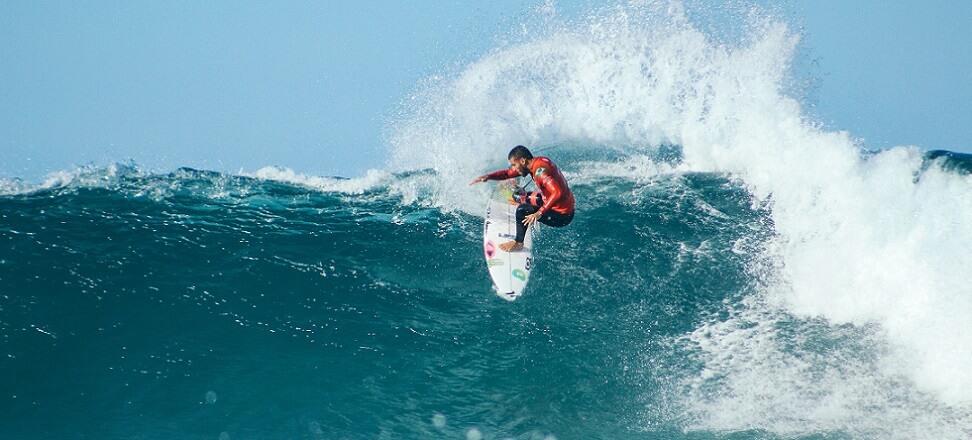This year’s Olympics will be held primarily in Paris, but competition among surfers is scheduled for 15,000 miles away. Tahiti km. There is no doubt that this largest of French Polynesia’s islands will provide wave lovers with optimal conditions to showcase their skills. However, Tahiti’s local communities are expressing concerns about the potentially negative impact the Olympics could have on the environment and traditional lifestyles. The question arises: who will ultimately gain and who will lose from hosting this prestigious international sports event?
Teahupo’o – the black jewel of Polynesia
Surfing as a sport will appear at this year’s Games for the second time. The overseas territories of France, more specifically the small village of Teahupo’o on the southeastern coast of Tahiti, were chosen as the arena for the struggle. The local black beach has gained notoriety among surfers over the past 20 years for its massive waves as high as 3-7 meters. Since 1999. World Surfing League competitions are held here every year.
Despite this popularity, Teahupo’o has remained a quiet, non-commercialized settlement with a single dead-end asphalt street and modest food offerings. The Olympics will come to the village for just a week, but they have already been electrifying the local community and environmental activists around the world for months. Especially since the original plans included the construction of new roads and hotels in Tahiti. After violent protests, the scale of preparations has been significantly reduced, with accommodation for athletes and spectators to be provided by local residents and a specially prepared yacht.

Will the coral reef survive the Olympics?
Preparations for the Tahiti Olympics encountered a major obstacle in December 2023. A barge intended to support the construction of a new observation tower for the judges got stuck on an offshore coral reef during the voyage and snapped off a section of it. The incident sparked understandable protests and outrage. It is thanks to the reef that the waves at Teahupo’o are so unique, while the reef is home to dozens of species of fish that the local community makes a living from.
After the accident, more than 200,000 people signed an online petition against the project, which includes drilling two-meter-deep wells into the reef. Environmental activists fear that in addition to disrupting the coastal ecosystem, the intervention could attract the algae Gambierdiscus toxicus. They produce dangerous toxins that seep into the bodies of fish and seafood, causing a serious poisoning in humans called ciguatera. Its effects can be fatal.
The president of French Polynesia halted work on a new aluminum tower, and after considering various scenarios, a more economical design was adopted. The structure will be implemented, but is expected to be 5 tons lighter and 50m2 smaller. The number of people and equipment that will be allowed on the tower during the Olympic competition has also been restricted. In addition, local teams are involved in the creation of the installation to ensure transparency of operations.
How will the Olympics affect Tahiti?
Time will tell if the precautions taken will preserve the reef at Teahupo’o in its original state. The Paris Olympics, for the time being, are being advertised as the first green Games, and the controversy in Tahiti somewhat contradicts the image being built by the organizers. There is no denying that a sports event of this magnitude can also entail positive phenomena. A sizable number of residents plan to rent their homes to the thousands of fans who will come to watch the struggle on the waves. Their spending will strengthen the local economy and has the potential to provide a much-needed boost to the local community.
On the other hand, Tahitian society has remained true to its culture and traditions for thousands of years, very closely linked to nature. According to the daily Le Monde, life here is between farming and fishing, between the sea and the lagoon. According to many residents, the possible upgrades and new infrastructure will not necessarily fit in with local heritage. Polynesians, meanwhile, want to preserve the unique character of Teahupo’o Beach, which is one of the few such secluded surfing locations in the world.
The Olympic Committee, meanwhile, assures that the customs and wishes of the people of Tahiti will be respected. To this end, since January this year. monthly meetings are held with the local community, and an information office has been opened on site. For the time being, work on the tower, due to be completed on May 13, is proceeding as planned and without further objections. So there is a chance that this year’s Olympics will nevertheless set an important precedent for holding major events with respect for the local environment and culture.

 Polski
Polski






